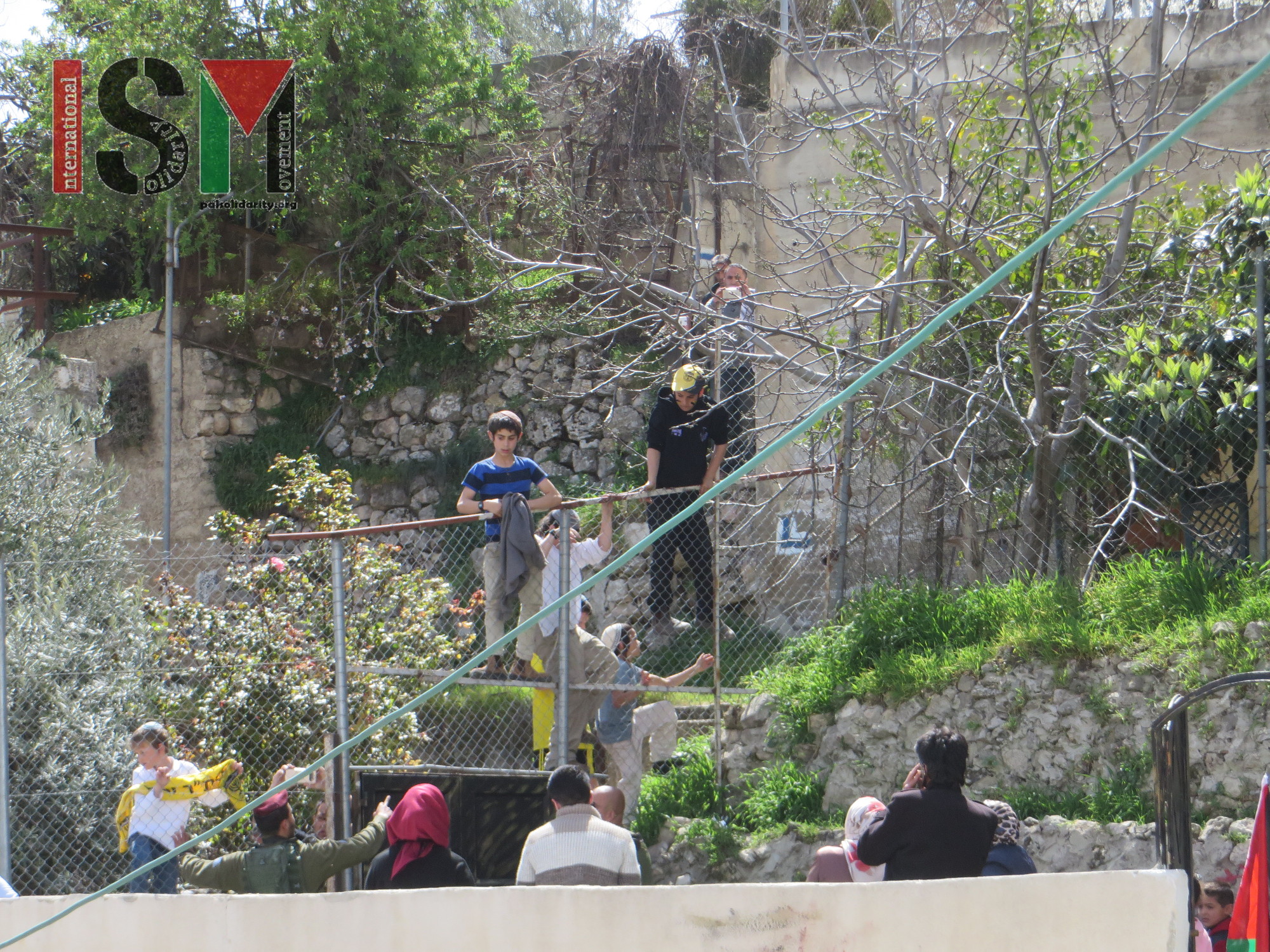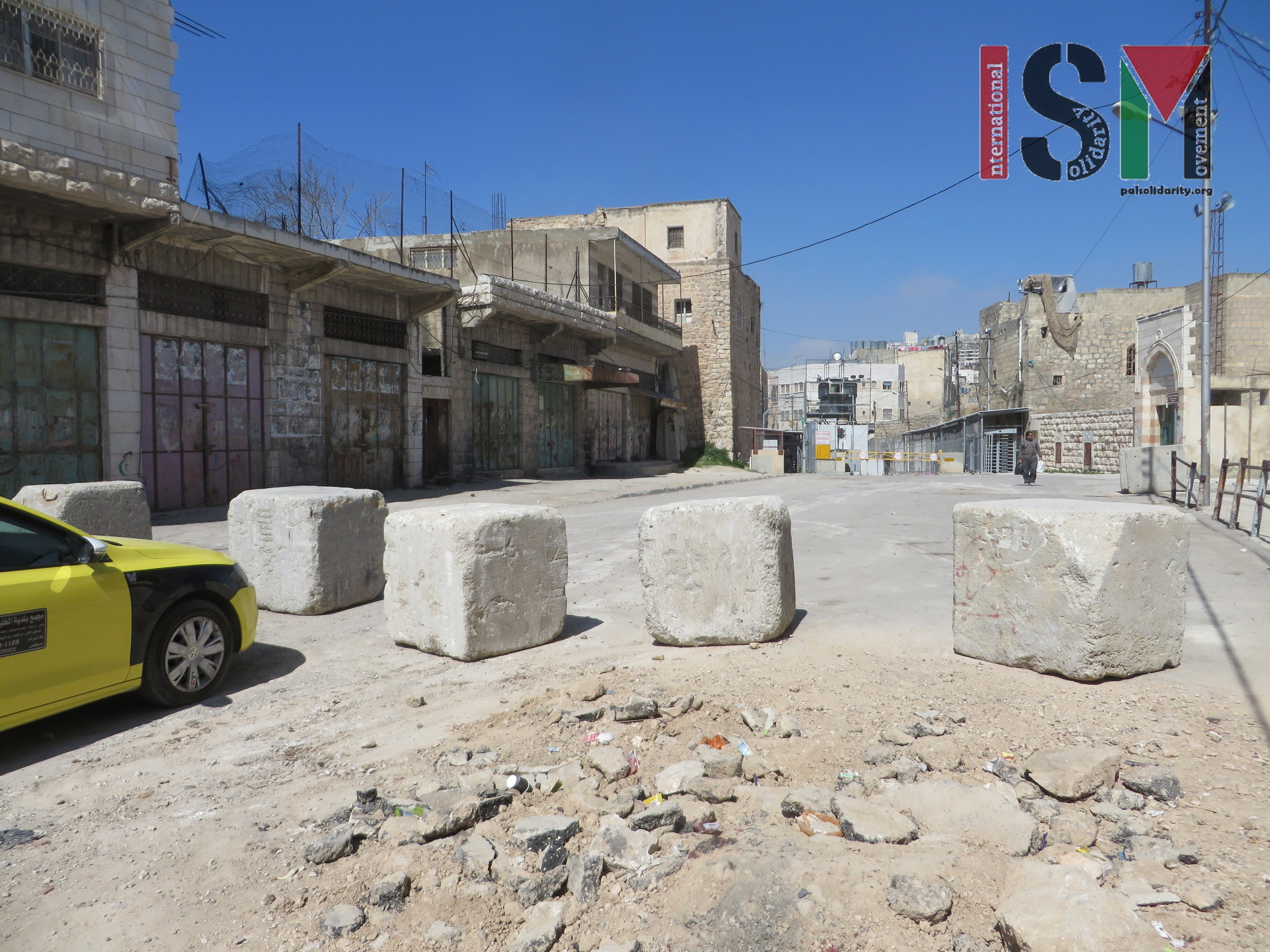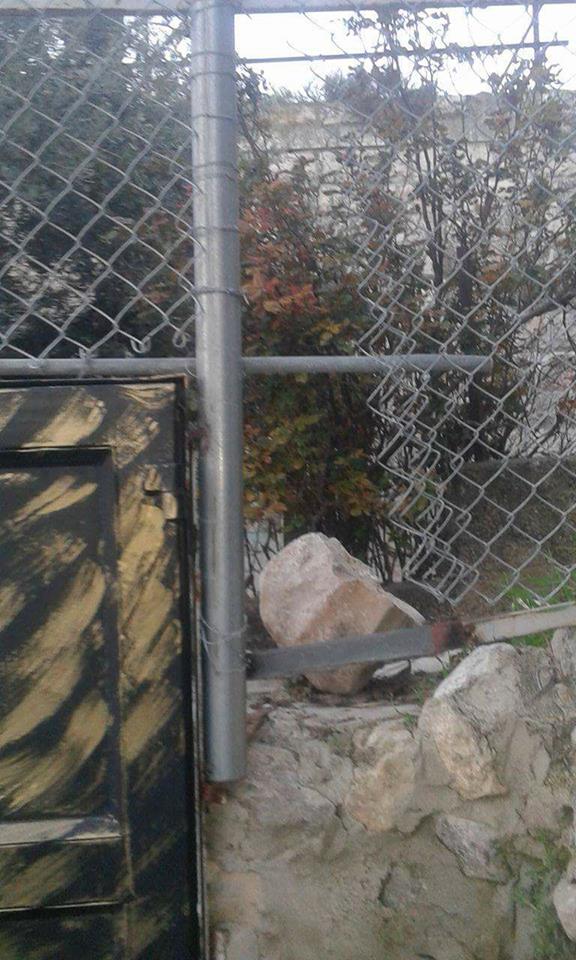Tag: International law
-
Curfew, harassment and break-in for Shuhada Street as settlers celebrate Purim
14th March 2017 | International Solidarity Movement, al-Khalil team | Hebron, occupied Palestine Israeli settlers on 12th March 2017 harassed and threatened Palestinians and attempted to break into Shuhada Street kindergarten, as the Tel Rumeida neighborhood in occupied al-Khalil (Hebron) was put under curfew for Palestinians so that settlers could celebrate Purim undisturbed by Palestinian presence.…
-
Step by step Israeli forces limit access to Ibrahimi mosque area
7th March 2017 | International Solidarity Movement, al-Khalil team | Hebron, occupied Palestine Israeli forces on Monday night installed more concrete blocks near Queitun checkpoint in occupied al-Khalil (Hebron) further restricting Palestinian freedom of movement. Israeli forces put a new line of cement blocks several meters away from Shuhada checkpoint, entirely blocking the access to…
-
Illegal settlers break into kindergarten, damage property
7th March 2017 | International Solidarity Movement, al-Khalil team | Hebron, occupied Palestine Colonial settlers from the illegal settlements in occupied al-Khalil (Hebron) have repeatedly invaded and damaged a Palestinian kindergarten located on Shuhada Street over the last two days. On Saturday night, the colonial settlers entered the Shuhada Street kindergarten, stealing two Palestinian flags…



